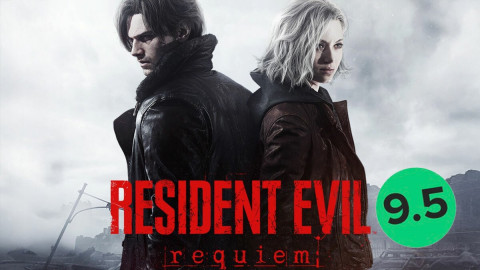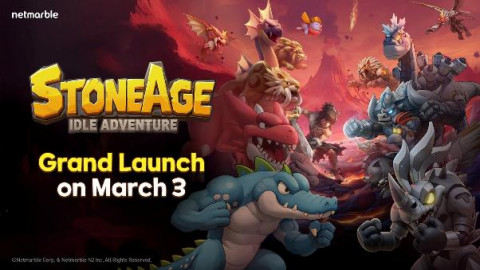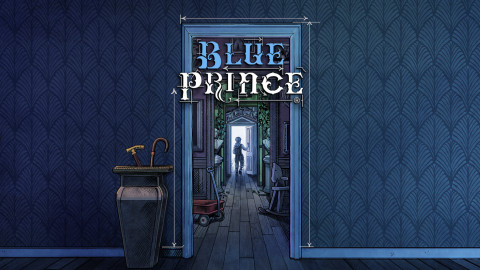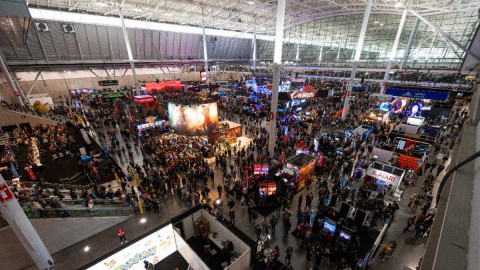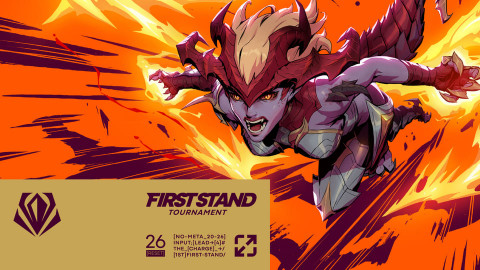
The Switch is not the sum of its parts
Just last week, Nintendo held a presentation for its new gaming console, the Switch. From the event, people were privy to almost all of the information about the device. Soon after, many discussions about the Switch ensued. The topic was simple; will the Switch be another Wii, or a Wii U?
Reflecting back on my personal life, I have not crossed paths with Nintendo as a company. When every kid in my grade school wanted a handheld console, I bought a GP32 over the ever-popular Game Boy Advance (I still regret my decision fifteen or so years later). I didn’t think much of the Wii’s success, and the first console I got as an adult was an Xbox 360. Eventually, I came into contact with Nintendo when the new Monster Hunter came out for the 3DS.
Despite my history, I actually count myself in with the people who were deeply impressed by the Switch. There is a number of reasons: the reasonable price, the integration of home and portable systems, and the removal of region lock and proprietary format. However, what I want to discuss about the Switch isn’t just the hardware specs. Instead, it’s about the ideals that Nintendo wants to create with the device.

Everyone is probably familiar with the history of Nintendo. Once, the name was synonymous with the worldwide gaming industry in general. Many other companies have attempted to take the title away from Nintendo, and they eventually got the short end of the stick. Atop the graves of these failed companies, Nintendo solidified its position as the largest and the best gaming company in the world.
However, one of the most interesting points in Nintendo’s history happened after the SNES. From the N64 to the present, Nintendo has had some dynamic and turbulent years since the 90s. During those times, the N64 popularized analog sticks, the GameCube introduced new optical drives, the Wii revolutionized input systems, and the Wii U implemented touchscreens.
At the very least, one thing is certain from looking at Nintendo’s history; Nintendo as a company loathes competing with others through the same strategy. Looking at the N64 all the way to the Wii U, the evidence speaks for itself. For better or worse, Nintendo systems have always been distinctly unorthodox. As such, the word ‘Nintendo’ took on a meaning of its own that is used in casual conversations.
Their consoles and games constantly remind us of Nintendo’s philosophy, although it’s sometimes seen as a blind devotion to a false cause. That’s why Nintendo always had a sharp contrast when it came to their products; Nintendo achieved phenomenal success that seemed only attainable for them, while miserably failing in other regards. It’s for that reason that people have divisive opinions about the company and their products.

So, this is where I build my case; how did someone like myself, who did not look fondly upon Nintendo, find their philosophy attractive and come to harbor love for the Switch? In short, how does the Nintendo Switch captivate people?
Nintendo’s double-edged sword: mass appeal
Let’s get one thing straight. What image does the word ‘Nintendo; conjure for core gamers who are largely in their 20s and 30s? Most people will connect Nintendo with seemingly simple and cute party games that children and party-goers love. All these descriptions feed directly into mass appeal. What’s interesting is that, before the Wii, Nintendo used to be the go-to choice of console for core gamers.
After the massive success of the Wii, Nintendo specifically tailored their system for mass appeal. And it was not just a matter of making casual games and keeping the price of the consoles down. Nintendo is the only company that actively supports local co-op, which has been a long-standing console tradition. As a result, the “party game” genre has become a part of Nintendo’s own identity, used to distinguish it from others.

After the advent of HD, Nintendo’s mass appeal identity was the engine that drove it to the top of the industry, as well as the culprit that pushed them into oblivion. Everyone predicted that Nintendo would follow other platform holders’ footsteps by compromising between the masses and core gamers. The Wii U did exactly that, but it was not enough.
Perhaps the Wii U was the wrong compromise. On one hand, the general audience, who already owned the Wii, found nothing special about a system that only improves on hardware specs while keeping its features the same. In contrast, core gamers did not readily embrace Nintendo’s mass appeal position on games, and they weren’t attracted to a system that does not carry any core gaming titles. Consequently, the Wii U failed to capture either group and became one of the biggest disappointments in Nintendo’s home gaming console history.
After the Wii U, many people anticipated and expected Nintendo to abandon its mass appeal approach, but the Switch was revealed as a machine specifically targeted towards the public. Understandably, many people predict that the Switch will walk the same awkward steps as the Wii U did, by failing to capture neither core nor casual audiences.
But, will it?
Let me briefly take a detour. At the end of last year, Nintendo oddly chose Jimmy Fallon’s Tonight Show to unveil the Switch demonstration for the first time. Although NBC’s Tonight Show is among the most popular late shows in America, it’s still difficult to argue that it’s the best place to hold a first ever demo of a new console made by a Japanese company.
In fact, Jimmy Fallon, the host of the show, has an interesting anecdote involving Nintendo. When Nicole Kidman, a top Hollywood actress, came on the show as a guest, Fallon shared a story of him having an encounter with Kidman. Since it was before Fallon got married and Kidman remarried, it probably happened before 2006. The gist of the story was that Kidman, who was single and had some interest in Fallon, came to his house unannounced, and Fallon, who was understandably flustered, gave her some leftover food and then they played video games together – possibly GameCube or N64’s Mario series – for an hour and a half. The Australian actress recalled that it was the worst date she ever went on, if it could be called one at all, and, of course, fans made a big deal out of it.
As someone who knew about this context, I had a blast watching Fallon geeking out over the Switch and playing The Legend of Zelda. Then it hit me. What if he had owned the Switch instead of the GameCube, and they played 1-2 Switch together, instead of Mario on that “date” with Kidman? Granted, romantic relationships don’t solely depend on minor quirks, and it’s unlikely Kidman would happily accept a hobby that she had no prior interest in, but at least she would not have thought of Fallon as a nerd who played video games and didn’t talk to her when she made a personal visit to his house.

That’s when it became clear to me that Nintendo’s mass appeal strategy has been geared differently compared to last time. As has been always the case, the goal of the strategy is to break down all barriers, until non-gamers can embrace video games.
Why the Switch can be the better younger sibling
Despite having core titles with massive followings such as The Legend of Zelda, Nintendo has always been emphasizing a party-friendly image with their consoles and games. Countless party games have made their place in the market, and even in Korea, where a console audience is almost nonexistent, the Wii survives in the form of “multi bangs” à la PC bangs after Winning Eleven on the PlayStation fell out of favor.

As a result, non-gamers, who learned about gaming through Nintendo, did not spend money on gaming nor did they always play games, but they came to accept Nintendo’s games as a special hobby. Essentially, these people did not like gaming per se, but enjoyed Nintendo. In other words, Nintendo had a window of opportunity to gain a new market.
Despite the company’s efforts, there were still barriers left to fully break in the new fanbase. First, one has to make a financial commitment to buy the console along with a number of Wii Remotes for multiple players. On top of everything, one has to have a place big enough to accommodate people and a suitable TV. Above all, one has to actually bring people to a physical location like a house or an aforementioned multi bang. Even the most accessible console in history has these inherent limitations.
The question still remains: how will the Switch appeal to the non-gaming public despite all of these barriers? One telltale sign may be one of the launch titles, 1-2-Switch. Surprisingly, many of my non-gamer friends positively responded when I showed them the 1-2-Switch’s demo video. Of course, it is not wise to generalize, but if they saw Overwatch, most of them would be instantly turned off.
Contrary to the many premature evaluations floating around on the internet, the Switch is a product that is fundamentally different from the Wii U. For starters, the Switch is on another level of accessibility because of the portable nature, without the need for a TV. Also, the ability to play with a friend without having additional accessories or equipment makes Switch one of the most accessible systems to experience gaming culture first hand. All of this is possible without making a purchase decision. Imagine how important it is to try before you buy when you first got into gaming.
Now, back to the story about Fallon and the synergy between the Switch and 1-2-Switch. Who can resist the combination of the most non-gamer friendly console in history and one of the most intuitive co-op gaming experiences? Fallon would give Kidman a Joy-Con to duel him in a match to see who’s better at milking cows. What possible reason could she have to decline the offer?
She doesn’t know how to play? The moment people hear the phrase ‘milking a cow’, they can infer how it is played. Too much work? You just hold a stick in your hands. Stressed about losing? It’s a mini game that takes less than a minute. Afraid people will make fun of you? Well, you’ll have a blast while looking silly. That’s the charm.
Now out of excuses, Kidman agrees to play the game. It’s a game she’s seeing for the first time, but she’ll soon get the hang of it. There’s no longer an uncomfortable image of Fallon playing Mario alone with Kidman passively watching and not talking. With the Switch, the two people may be unsure if this unfamiliar, awkward machine is what they need to start their friendship, but they’ll certainly laugh more and maybe have some small talk in a better atmosphere overall.

So then, is aiming for the lowest common denominator a be-all and end-all strategy? I can confidently say it’s a resounding no. Since the mirage of the Wii has long been over and despite non-gaming public picking up consoles, at the end of the day, the lifeblood of big franchise titles are the core gamers.
In addition to the non-gaming masses giving the cold shoulder to the Wii U, a structural flaw of the Wii U was that it failed to remain relevant to core gamers. After all, video games and consoles are luxury goods and not a necessity. So ultimately, only core fans, who are invested in the games and the systems, generate stable profits for the company. Even if it’s a once in a lifetime kind of a video game, it will fall on deaf ears for people who do not incorporate gaming into their lives.
In regards to all this, the Switch aims to remedy the treatment of core gamers by bringing back core titles such as The Legend of Zelda, Skyrim, Dragon Quest, and Shin Megami Tensei, which are titles akin to bibles for the loyal fan base. When compared with the Wii U’s launch titles and multi-platform port games, it is easy to see that Nintendo is catering to the core audience this time around. Having said that, Skyrim and Dragon Quest fall under the category of previous generation port games, but the portability of the Switch still makes those games feel special. In fact, I can look past the sub-par hardware due to the portable nature of the system. Imagine playing Skyrim on the go. If people who are excited by such a premise are not core gamers, I don’t know who they are.

All in all, it is impossible as well as impractical to gauge the Switch’s viability on the basis of one aspect only. The Switch has many things to offer. For instance, it can be a portable console, has more core titles than the Wii era, allows for two-player controls out of the box, and features some of the latest sensory inputs such as touch, voice, and motion, not to mention the removal of region lock and proprietary format. Without taking into account all the pieces, optimistically or pessimistically judging the product based on an individual feature alone is premature.
I’m not here to argue that the Switch is the most powerful console and the de facto best console there is. In the end, consoles just have to fit the needs of individual gamers. For this reason, the Switch is the most friendly system to both non-gaming and core audiences in Nintendo’s history. That’s why I remain cautiously hopeful that the Switch may surpass its predecessors and redefine success in gaming history.
Will the Switch realize Nintendo’s vision?
As rational consumers who spend hard-earned cash only for products they see fit, people may not buy products if they don’t feel they are worth their resources, no matter how magical the product’s ideals and visions are. This is where Nintendo has to bridge the gap between the ideals and the actual product itself. One case in point is the seemingly scarce number of titles released, due to the diversification of game categories.
After the success of the Wii, the Switch wants to tackle the winner’s dilemma and the failures of the Wii U by appealing to both core and non-gaming audiences. From a hardware perspective, allowing for intuitive input sensors and two-player co-op right off the bat is attractive for the general audience, whereas portable FHD games are geared towards core gamers. From a software side, titles like The Legend of Zelda, Skyrim, and Shin Megami Tensei have innately different points of interest compared to 1-2-Switch, ARMS, and Mario Kart.

Although different game categories have existed since the days of the Wii, it could not satisfy both audiences due to hardware and input limitations. What is different with the Switch is its improved hardware. Nintendo’s strategy of catching two birds with one stone has been embedded in the company’s identity, because the company has been chasing the ideals of this strategy.
Nintendo is more than a simple hardware and software manufacturer. Instead, they offer a new culture through their products having a real impact on our lives. In short, it’s fitting to say that Nintendo is in the business of selling cultures. It’s not hard to imagine spending time with friends playing games, regardless of locations, while creating fond memories. After all, isn’t that what every gamer wants?
To backup their claims, Nintendo is armed with a solid philosophy and knows what it needs to change in their products to convey that message to consumers. No one knows the future, but their efforts to be successful in all aspects - economics, prestige, and culture – are nothing short of amazing and worthwhile. Nintendo’s past successes all have been special and unique in ways only characteristic of Nintendo. Ironically, this has been one of the driving forces for Nintendo to be hugely successful over companies that tunnel vision towards financial gains.

Now Nintendo wants to walk the fine line between maintaining their unique taste and style while adjusting their philosophy to the winds of change. Most people see two diverging paths and tend to quickly choose one over the other. That is why I am touched by Nintendo’s endeavors, and I hope it fares well. Watching many people who so readily give up on ideals under harsh realities, I hope Nintendo can prove them wrong by showing that ideals and reality can coexist.
Sort by:
Comments :0



